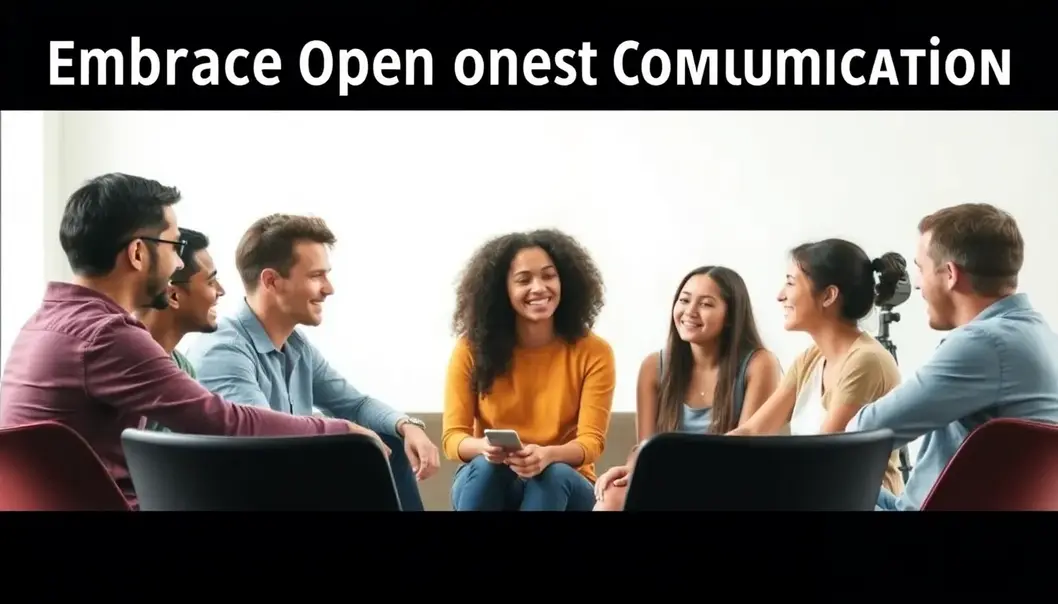Conflict is like that uninvited guest at a party who just won’t leave. It sneaks into our relationships, whether we like it or not. For young adults juggling friendships, studies, and new jobs, understanding how to manage conflict is crucial. While avoiding it may seem easier, learning to deal with disagreements head-on can lead to growth, stronger relationships, and personal peace. In this journey, we’ll explore practical and healthy ways to handle conflicts, focusing on communication, empathy, and perspective-taking. Let’s dive in and turn conflicts into opportunities for understanding and development.
Embrace Open and Honest Communication

Navigating conflicts requires a foundation of open and honest communication. This skill enables young adults to express themselves clearly, reducing miscommunication and fostering understanding. However, unpolished communication can often lead to unintended offenses.
To express feelings and thoughts without causing offense, using ‘I’ statements is a powerful technique. This involves starting statements with ‘I feel’ or ‘I think’ instead of accusatory language. For instance, saying “I feel upset when I’m not heard” frames the issue without placing blame. This simple shift in language can prevent the listener from becoming defensive.
Active listening is another cornerstone of effective communication. It requires total attention and engagement with the speaker, focusing not only on words but also on emotions. Paraphrasing the speaker’s message demonstrates active listening. For example, if a friend expresses anxiety over an upcoming exam, responding with, “So, you’re feeling anxious about the test?” shows that you understand their concern.
Misunderstandings are common in everyday interactions. Imagine a roommate situation where one person assumes the other will handle cleaning duties. The assumption leads to resentment because expectations are unspoken. An open conversation using direct and clear communication can resolve this. Discussing a cleaning schedule openly can prevent potential fallout over assumed responsibilities.
Practical solutions for overcoming communication blocks include taking deep breaths to maintain calmness and preparing your thoughts before speaking. When faced with a heated exchange, pausing to take a breath can provide a moment to reassess and avoid impulsive reactions. Additionally, writing down key points before entering a conversation helps keep it focused and prevents emotions from overshadowing the intended message.
Building the habit of asking clarifying questions can also mitigate misunderstandings. Phrases like “Could you elaborate on that?” or “What I’m hearing is…” ensure both parties are on the same page. This technique affirms that you are invested in reaching a mutual understanding and are not simply waiting for your turn to speak.
In the broader context of interpersonal relationships, achieving harmony through communication often involves continuous learning and adapting to various dynamics. By embracing open and honest communication, young adults can foster more meaningful connections and effectively resolve conflicts.
Empathy and Perspective-Taking

When it comes to resolving conflicts, empathy serves as a powerful lubricant for the rough edges of misunderstanding. Empathy involves not only recognizing another person’s emotions but also sharing in their feelings. This ability to take on the emotional frame of another offers a profound gateway to transforming adversarial interactions into cooperative dialogues.
Consider a scenario where two roommates are at odds over household chores. Rather than allowing irritation to fester, stepping into each other’s shoes can unearth hidden motivations and feelings. One roommate might feel overwhelmed by schoolwork, while the other might crave a cleaner living space to relax. With empathy, they can begin to see beyond the surface of the conflict and address its root causes.
Developing empathy requires practice and awareness. Begin by actively listening to others—focus on the speaker without planning your response simultaneously. In these moments, pay attention not just to words but also to emotional cues such as tone, pace, and body language. These subtleties often reveal the true emotions underneath a person’s words, allowing you to respond more thoughtfully.
A key method to practice empathy is perspective-taking. Ask yourself, “How would I feel if I were in their situation?” Doing so can open your mind to alternative viewpoints. Approach conversations with curiosity rather than judgment. Use non-confrontational questions like, “Can you tell me more about why you believe that?” or “What led you to feel this way?” These questions foster openness and encourage a deeper level of dialogue, making the other person feel heard and understood.
When you deploy empathy and perspective-taking in conflict scenarios, the potential for resolution expands. Misunderstanding shrinks, assumptions dissolve, and common ground becomes easier to identify. The process is less about changing the other person’s mind and more about creating a space where collaborative solutions can flourish. In this cooperative environment, conflicts become opportunities for growth rather than sources of division.
Through empathy, we also learn to recognize our own emotional triggers, allowing us to manage our reactions more effectively. This is crucial in maintaining healthy relationships and nurturing our emotional intelligence as we navigate the complex social landscapes of young adulthood. For those looking to dive deeper into the emotional complexities of understanding, exploring resources that discuss emotional connections with other beings, like this article on managing separation anxiety in dogs, can offer insightful parallels and techniques.
Harness the transformative power of empathy and let perspective-taking be your compass during conflicts. In doing so, you’ll cultivate not just harmony but richer, more meaningful connections with those around you.
Final words
Dealing with conflict is not about avoiding disagreements but transforming them into conversations that lead to better understanding and stronger bonds. By employing open communication and empathy, young adults can navigate their relationships with more grace and effectiveness. As you encounter conflicts in your life, remember these tools to create a more harmonious and connected world around you.
For more tips on conflict resolution and personal development, visit our website for resources and workshops.
Learn more: https://www.peacefulplanet.com/resources
About us
Peaceful Planet offers workshops, articles, and personalized coaching to guide young adults in mastering conflict resolution, communication, and emotional intelligence skills. Our resources are designed to help individuals build fulfilling relationships and lead happier, more harmonious lives.



